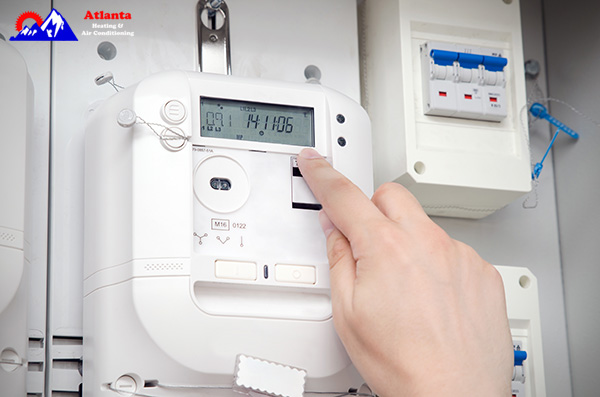What Does That SEER Rating Really Mean?
 Atlanta, GA – If you’ve been looking at upgrading your HVAC unit, you’ve may have been wondering about SEER ratings – what are they, and is a higher one really better for your home? Phil Montgomery, owner of Atlanta Heating and Air Conditioning, explains what you need to know about SEER ratings.
Atlanta, GA – If you’ve been looking at upgrading your HVAC unit, you’ve may have been wondering about SEER ratings – what are they, and is a higher one really better for your home? Phil Montgomery, owner of Atlanta Heating and Air Conditioning, explains what you need to know about SEER ratings.
What does SEER mean?
SEER stands for Seasonal Energy Efficiency Ratio. It is a metric used to measure how much cooling a system puts out for each unit of energy that it consumes. The rating is the ratio of the cooling output of an air conditioner over a typical cooling season, divided by the energy it consumes in watt-hours.
Does a low SEER rating mean my air conditioner is bad?
This is a myth often associated with SEER ratings. States typically have a minimum SEER rating that an AC unit must meet, usually 13 or 14, and people may assume that if they opt for one of these that means they are opting for the low end of AC units. But if you’ve lived in your home for a while, and haven’t replaced the AC unit yet, you may have a unit that falls below these SEER rating guidelines. So, if you currently have an older unit that is an 8 or 9 SEER, and upgrade to a 14 SEER, your efficiency will improve greatly.
An important piece of information to remember is that the SEER rating is the unit’s maximum potential. That means that even if you splurge on a unit that is a 21 SEER, that doesn’t mean it will always operate at a 21 SEER. It means it has the potential to. When it comes to heating and cooling, we talk a lot in terms of cars – your HVAC unit must be maintained as a car needs tune-ups, and we can use another car analogy when it comes to SEER ratings. Think of your SEER rating as you do the miles per gallon your car can get. If the temperature in your house is constantly changing, you most likely won’t get the full potential of your SEER rating.
SEER ratings can go as high as 25, but when looking at new AC units, it is important to take a few other factors into consideration. First, we have to look at the climate where you live, as well as the climate inside your home. If your home currently has an 8-10 SEER, a 13 or 14 SEER will most likely be a great match for you. But, you also need to consider the size of the new system, the size of your home, how long you plan to live in your home, and how often you typically use your AC.
If you are in the market for a new AC unit, the cooler season is a great time to begin shopping and researching. The experts at Atlanta Heating and Air Conditioning are always available to answer your questions, and offer their recommendations for what AC unit and SEER rating is right for you. Call today, 404-942-9779, for a quote a the right air conditioning unit for your home.




